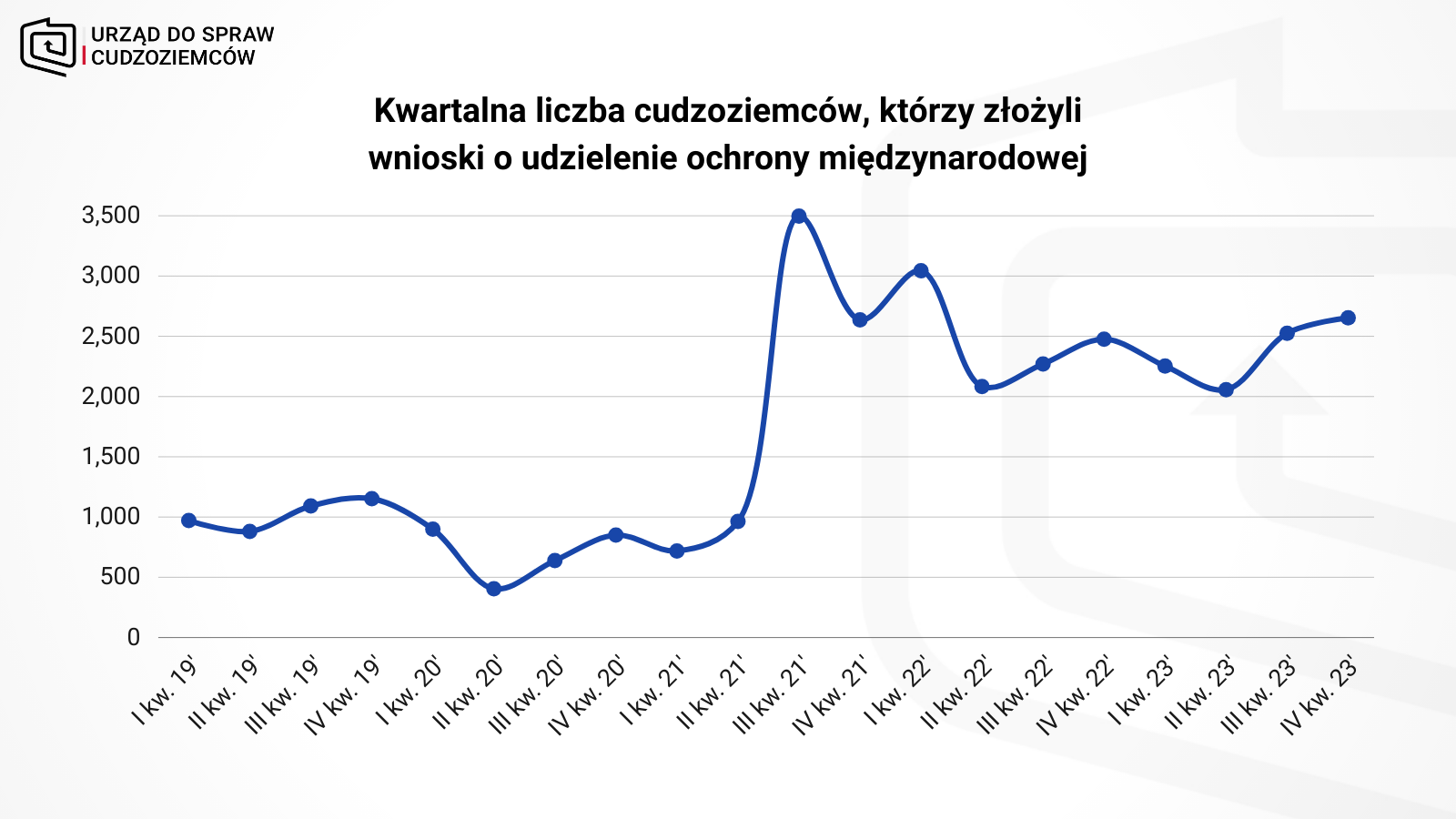Poland has launched a special app, called Refugeebook, to support those who have applied for asylum in the country.
The service was created by the Office for Foreigners (UDSC), the government body responsible for matters relating to foreigners’ entry to, transit through, and stays in Poland.
Available in Polish, English, Russian and Ukrainian, it provides those who have applied for international protection with information on their rights and obligations, documents required to be granted protection, and sources of social and medical aid.
The app also provides educational content, such as information on Polish history and culture, as well as details of NGOs that provide help to foreigners in Poland.
📱Uruchomiliśmy aplikację dla cudzoziemców ubiegających się o udzielenie ochrony międzynarodowej!
Dzięki aplikacji „Refugeebook” cudzoziemcy mają łatwiejszy dostęp do najważniejszych informacji w trakcie procedury. ⤵️ pic.twitter.com/Ll6H8KYyr5
— Urząd do Spraw Cudzoziemców (@UdSC_gov_pl) April 23, 2024
In comments to Notes from Poland, the UDSC explained that access to the app is provided only once someone has applied for international protection in Poland.
It then provides them with “easier access to the most important information during the procedure”, says the UDSC. The app cannot be used to submit applications for asylum, which must be filed upon entry to the country.
While awaiting decisions, applicants can benefit from social assistance (including housing, food and medical care) provided by the UDSC as well as educational activities such as Polish language classes.
Poland has begun processing asylum claims and providing care for more than a thousand Afghans evacuated from Kabul.
Meanwhile, local communities where the refugees are housed have been gathering donations to help the new arrivals https://t.co/OKhLp2ZPgW
— Notes from Poland 🇵🇱 (@notesfrompoland) August 27, 2021
Almost 3,000 people submitted applications for international protection in Poland in the first quarter of this year, notes the UDSC. That compares to a total of 9,500 across the whole of 2023.
Among that latter figure, for the third year in a row the largest number of applicants were from Belarus (3,700), followed by Ukrainians and Russians (1,800 each). (Most of the Ukrainians who fled to Poland after Russia’s invasion were given a special legal status separate from asylum.)
Around two thirds of applications were submitted by men, with the most common age group being 18-34 years. One quarter of applications concerned those aged under 18.
Those whose applications are being assessed are given a choice of staying in a special center for foreigners or living independently with financial assistance received from the UDSC. As of December 31, 2023, 4,400 foreigners were benefiting from such social assistance, 670 of whom were staying in centers for foreigners.

The quarterly number of foreigners submitting applications for international protection in Poland.
While Poland has won praise in recent years for welcoming refugees from neighbouring Ukraine and Belarus, it has also faced criticism for its tough response to a wave of migrants and asylum seekers – mostly from the Middle East, Asia and Africa – trying to cross the border from Belarus.
Many of those people, who cross the border away from legal checkpoints, have been returned to Belarus through a controversial practice known as “pushbacks”. Human rights groups and some international institutions have accused Poland of violating the law by doing so.
However, both the former Law and Justice (PiS) government that ruled Poland until the end of 2023 and the new coalition government led by Donald Tusk have insisted that it is their duty to protect Poland’s border – which is also the EU and NATO’s eastern frontier – from illegal crossings.
The “brutal truth” is that the “survival of Western civilisation” depends on preventing “uncontrolled migration”, says Polish Prime Minister @donaldtusk.
"We [must] wake up and understand that we have to protect our borders…[or] our world will collapse" https://t.co/mPwGIMCoU9
— Notes from Poland 🇵🇱 (@notesfrompoland) February 12, 2024

Notes from Poland is run by a small editorial team and published by an independent, non-profit foundation that is funded through donations from our readers. We cannot do what we do without your support.
Main image credit: Urząd do Spraw Cudzoziemców/X

Agata Pyka is a former assistant editor at Notes from Poland. She specialises in Central and Eastern European affairs, cybersecurity, and investigative reporting. She holds a master’s degree in political communication from the University of Amsterdam, and her work has appeared in Euractiv, the Balkan Investigative Reporting Network (BIRN), and The European Correspondent, among others.



















